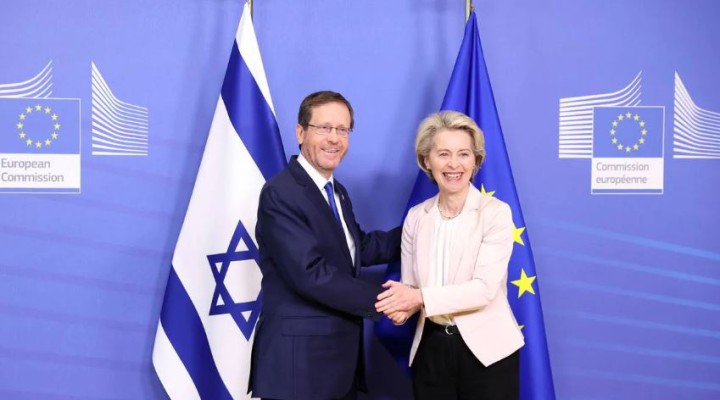The EU uses the ‘two-state’ framework to evade acknowledgement of Israeli apartheid

In January 2021, the Israeli human rights organisation B’Tselem declared that Israel imposes apartheid on the people of occupied Palestine, prompting other organisations to be more vocal about the colonial violence experienced by the Palestinians. Politically, the apartheid designation is failing to gain ground, as evidenced by the EU’s recent refusal to describe Israel through the internationally-recognised legal definition of apartheid, which is akin to a crime against humanity.
In January this year, the EU’s Foreign Policy Chief Josep Borrell responded to a parliamentary question posed in March 2022 by pro-Israel lawmakers, based upon Amnesty International’s 2022 report on Israel’s apartheid practices and whether the report falls under the International Holocaust Remembrance Alliance’s (IHRA) definition of anti-Semitism. The non-legally binding IHRA definition provides possible examples of anti-Semitism which basically exempts Israel from any criticism other than that which might be “levelled against any other country”. Given that Israel is a settler-colonial enterprise that continuously displaces Palestinians from their land, criticism of Israel inevitably differs from that levelled at other countries.
Borrell did not disappoint the Zionists, though. “The Commission is aware of the report referred to by the Honourable Members and is giving it due attention,” he said. “In any case, the Commission considers that it is not appropriate to use the term apartheid in connection with the State of Israel. Claiming that the existence of a State of Israel is a racist endeavour is amongst the illustrative examples included under the IHRA definition.”
After taking this stance, Borrell’s answer regurgitated the EU’s purported commitment to the two-state compromise, with a very clear footnote. To further emphasise the EU’s political stance on not recognising Palestine as a state when affirming its “commitment to a negotiated two-State solution”, Borrell added, “This designation shall not be construed as recognition of a State of Palestine and is without prejudice to the individual positions of the members states on this issue.” The EU uses the ‘two-state’ framework to evade any kind of acknowledgement that Israel imposes apartheid on the Palestinians.
While it is clear that Israel’s war crimes are ongoing rather than isolated bouts of violence, the EU’s approach consists of the absolute minimum focus on normalised atrocities against the Palestinian people. The two-state compromise has allowed Israel ample time to further its territorial ambitions to control what remains of Palestine. If the EU, which prides itself on illusory state-building in Palestine, continues to avail itself of the defunct premise, it may as well admit, unequivocally, that the bloc stands up for Israel’s colonisation of Palestinian territory and, as a result of colonisation, for the ongoing displacement of the Palestinian people.
What does Borrell think is “not appropriate” about calling out Israel’s apartheid policies? In 2017, Haaretz reported former Israeli Prime Minister Ehud Barak as warning that the state was heading for a “slippery slope of apartheid”. He had issued a similar warning as long ago as 2010.
Moreover, Israeli Prime Minister Benjamin Netanyahu declared in December Israel’s exclusivity in terms of it being a Jewish state: “The Jewish people have an exclusive and inalienable right to all parts of the Land of Israel. The government will promote and develop the settlement of all parts of the Land of Israel — in the Galilee, the Negev, the Golan and Judea and Samaria.” If Israel is endowing itself with apartheid policies as of “inalienable right”, through which it will prevail and finalise the colonisation project to which the EU has proven itself to be so partial, then Borrell should have no difficulty declaring his allegiance. After all, the EU’s purportedly pro-Palestine stance has repeatedly been exposed as a fraudulent farce.
https://www.middleeastmonitor.com/20230209-the-eu-uses-the-two-state-framework-to-evade-acknowledgement-of-israeli-apartheid/
 TheAltWorld
TheAltWorld 
0 thoughts on “The EU uses the ‘two-state’ framework to evade acknowledgement of Israeli apartheid”